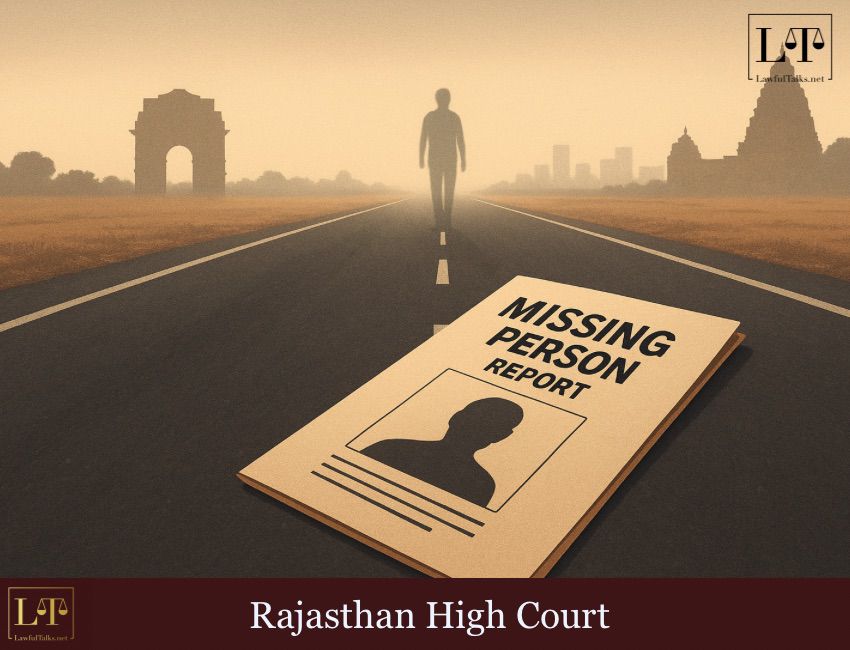Allahabad HC Sets Aside Afzal Ansari's Conviction, Allows Him to Continue as MP

In a notable ruling, the Rajasthan High Court, led by Justice Avneesh Jhingan and Justice Baljinder Singh Sandhu, dismissed a habeas corpus plea, making it clear that the extraordinary writ jurisdiction in cases of missing persons cannot be invoked merely to track the progress of an investigation or express dissatisfaction with how it is being conducted.

The bench observed that although the ambit of habeas corpus has broadened over the years, its application does not follow a fixed or mechanical formula. When the criminal procedure law provides specific remedies for supervising investigations or directing their proper conduct, such matters should be taken before the competent judicial forum, noted the judges.
Background:
The petition originated from a complaint by the brother of a CRPF constable who, after taking extended medical leave, failed to resume duty and subsequently went missing. Alleging that authorities had taken no meaningful action on the missing report he filed, the petitioner sought relief through the writ.
In response, the State submitted a status report indicating that CRPF authorities had already declared the constable an absconder and obtained arrest warrants. Further, the report detailed sightings of the missing man at a Delhi Metro station and later in Tirupati, suggesting that he was moving freely.
Court’s Observations:
After considering the submissions, the Court revisited settled legal principles on habeas corpus, emphasizing that unlawful detention is an essential prerequisite—sine qua non—for issuing such a writ.
“In the case in hand there is no pleading or allegation of an illegal detention of the corpus, and one of the basis requisite for writ of Habeas Corpus is of illegal detention. Present is a case where the grievance is against the manner of investigation of MPR.”
With this finding, the bench underlined that in missing person matters, habeas corpus cannot be routinely used to demand updates on an investigation or challenge its quality.
Instead, where alternate remedies exist under criminal law for supervising or directing investigations, the competent court must address these issues.
Consequently, the writ petition was dismissed.
Case Details: Smt. Babita v State of Rajasthan & Ors.

Anam Sayyed
4th Year, Law Student
Latest Posts
Categories
- International News 19 Posts
- Supreme Court 390 Posts
- High Courts 383 Posts



















































































































































































































































































































































































































































































































































































































































































































































































































